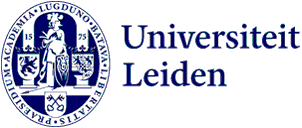Workshops and meetings
Read reports from workshops and meetups from this and last college year. Got inspred? In the calendar, you'll soon find meetings you can participate in yourself.
LUCA Workshops
In 2025, several well-attended workshops took place where lecturers could get acquainted with LUCA, Leiden University's own, secure GAI application. Read the reports and evaluations.
Hackathon during the Leiden Teachers Academy Conference
On June 5, the Leiden Teacher Academy organized a conference on educational innovation. Marc Cleiren (FSW) and Julian van der Kraats (ISSC) gave a workshop there: a hackathon with teachers who want to use AI in education.
Experimental platform
Julian: "Thanks to our experimental platform LUCA, you can easily (and safely!) create chatbots for education. There are good templates in there, and the teacher is also helped to create the bot by an ‘agent’ who asks questions, and writes a prompt for them based on that. As a result, you quickly have something you can test out, and then modify and test again. We also measured whether a hackathon like this really helps give people more confidence that AI can work in real-world education, and it did (see evaluation below). We also measured this at other hackathons, and similar figures come out. So hackathons work to provide inspiration and confidence, so that's a tool that the ISSC may be able to use more often.'
Evaluation

Workshop Building AI agents and chatbots at FSW
On 28 May 28 2025, some twenty FSW colleagues attended a workshop focused on building AI agents and chatbots with LUCA, primarily for supporting teaching and staff within the university context. The participants (teachers, scientists and support staff) worked in teams to develop prototypes.
Evaluation

Workshop for FGW teachers
On 16 January 2025 Faculty of Humanities organized a Lunchbyte for teachers, this time on AI, given by Julian van der Kraats (ISSC). Through his participation in the AI and Education Workgroup, in PrAIA and various Proof of Concepts, Julian has now gained a lot of knowledge about AI and education, which he shared in a workshop in which the participants could actually get started with AI.
Making your own chatbot
After explaining how AI works, its usefulness and its risks, the participants got to work together to make a bot on a secure platform provided by SURF as an experiment. Leiden University is one of the institutions participating in that experiment. Julian: 'We had limited time so we certainly didn't build a perfect tutoring bot, but it was instructive and above all inspiring. The first request to get access to SURF's platform as well is already in, so this is probably going to have a sequel.'
Pros and cons
Julian: "AI is going to change a lot for education. Students are already using it in all sorts of ways, but teachers and the university as a whole are lagging behind. If you want to use AI in a good way for education, you have to keep two things in mind. First, we need to be much more explicit about the learning objectives of a specific course, and tailor the use of AI accordingly. The instructor must work with the students to see how AI can be useful, but also how the use of AI can get in the way of meeting the learning objectives. If the goal is to learn to write a well-structured paper, you won't learn anything if you let AI create an outline for a paper. But if the goal is to do good source research and do an analysis on that, then maybe it's not a bad thing at all if AI just makes an outline for your paper, it's just helpful.
Don't be a manager
'The second thing to watch out for is that you don't manage AI as a “manager,” where you have AI perform all kinds of tasks for you. The result of that is usually pretty bad and you don't learn anything from it either. But if you approach AI as a partner with whom you create something together, then you start asking completely different questions. Then the result will be much better and you will also learn something from it. That's a general principle that applies not only within education, but to anyone who uses AI for anything'.
